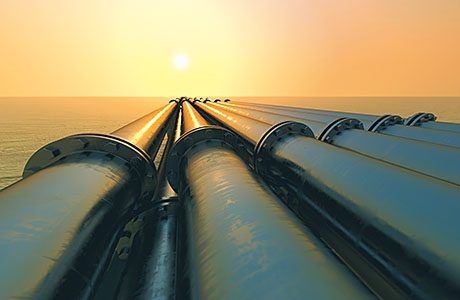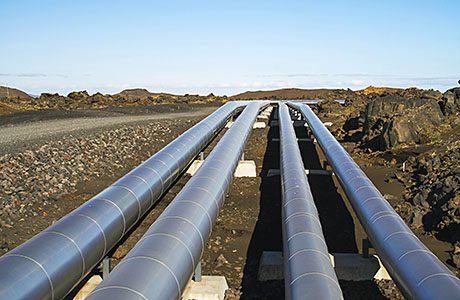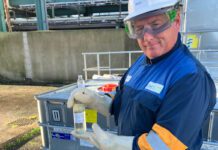
THE deployment of carbon capture and storage (CCS) in the UK will benefit hugely from the knowledge and expertise amassed by the pipeline and gas transport industries, delegates were told at a special focus event held in Edinburgh in June.
The evening event, co-hosted by Scottish Carbon Capture & Storage (SCCS) and The Pipeline Industries Guild, brought together industry experts and academics to debate the technical challenges as well as industry opportunities that could result as a CCS industry is rolled out. The delivery of commercial-scale CCS in the UK will depend on at least 20,000km of pipeline – both existing and new infrastructure – to transport CO² captured at large point sources, such as power stations, to offshore geological storage sites. Event organisers had targeted companies that may soon be tasked with delivering such a network when the first CCS projects get under way.
CO transport challenges
Davey Fitch, SCCS Business Development Executive, said: “CO² transport is a vital area that we’ve been exploring in SCCS, but we have to work with industry too. Organising this event with the Pipeline Industries Guild was a great way to reach their membership to communicate the challenges, listen to industry expertise and flag up new opportunities for economic growth. We hope to continue working with the Guild to strengthen the links between CCS research and industry. Having [technical consultants] TUV NEL along to talk about their CO² testing facilities showed that the pieces are in place for companies to move into CO² transport.”
Rob Graham, of QEM Solutions and the Pipeline Industries Guild, said: “There is already a huge amount of knowledge that the UK pipeline industry can offer a CCS industry. Our members represent years of amassed expertise and experience, which will be crucial if the UK is to put in place a robust system for capturing, transporting and storing CO. CCS could also offer additional market opportunities to the pipeline industry.

“Why work with SCCS? We see them as technical leaders, and they can also act as a conduit for bringing knowledge together.”
After an introduction to the status of CCS and its delivery in both the UK and abroad, delegates heard from Dr Hannah Chalmers, of the University of Edinburgh, who is engaged in research to improve understanding of the technical needs relating to pipeline networks. Dr Chalmers provided an overview of work such as defining and predicting the conditions – in both CCS and CO-enhanced oil recovery – that could result in corrosion, degradation and internal cracking in pipelines, and ways to mitigate these impacts.
Calum Hardie, of TUV NEL, then described how the technical consultancy has been developing CO² measurement test facilities, and highlighted the importance of flow measurement, leakage detection and monitoring at all stages of the CCS chain from CO² source to storage. He pointed out that such monitoring will be vital to fulfilling CCS legislation, and stressed that “different conditions will lead to different challenges”.
The event was held at the Edinburgh Centre for Carbon Innovation (ECCI). To find out more about opportunities for industry around CO² transport, email Davey Fitch, SCCS Business Development Executive on davey.fitch@sccs.org.uk or call 0131 650 0304.







